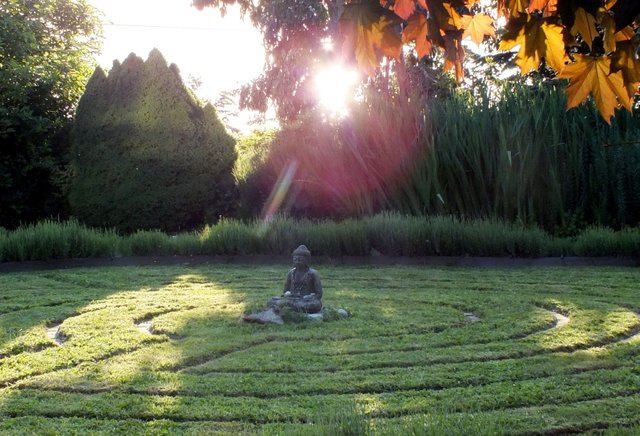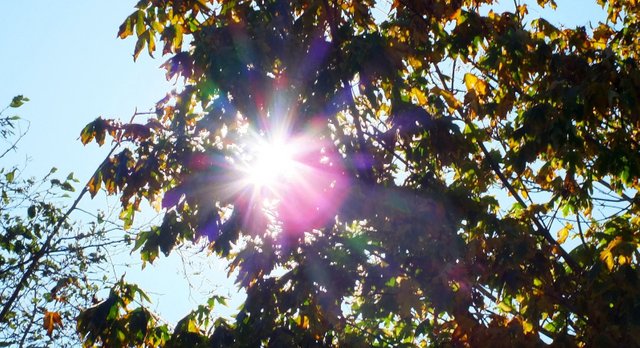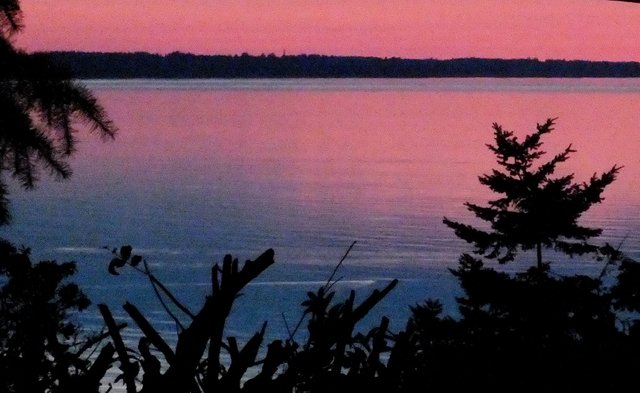Traveling at the Edge of Depression
We hear the term "depression" quite often, in our modern stressed-out world. Even people who know little about it throw the term around like confetti at a wedding, often perceiving themselves to be armchair experts.
In one of my favorite movies — a 2003 indie production called Off The Map — there is one particular scene that has always resonated deeply with me.
Charley (one of the primary protagonists who's deep in the throes of a debilitating depressive episode) is sitting on the steps outside the house in the middle of the night, talking to visitor William.
"Have you ever been depressed?" Charley asks.
"I've never NOT been depressed," William replies.
"Never NOT been depressed?"
"Never not."
"You've always been depressed?"
"Yes, sir."
"This is the first time for me. I don't know how you stand it."
"Well, I guess I'm used to it."
I have referred back to that bit of dialogue — or something very much like it — since about age 13-14 (long before the film), which was really the first time I cognitively wrapped my head around the fact that the world is — to a large degree — a very brutal and unfair place, filled with an enormous amount of suffering, injustice and unhappiness.
The thing about "depression" is that it is pretty much meaningless until you wrap some context around it.
John is depressed because his dog died.
Susan is depressed following her divorce.
Eric is depressed because he has an imbalance of body chemistry."
In most cases, these are transient situations that can be successfully addressed with therapy, pharmaceuticals, or both. Most therapists — even good ones — have a really good understanding of depression at those levels, and can do a world of good in helping people through their tough patches.
The lesser known form of depression, which is rarely talked about (likely because therapists and mental health professionals don't like talking about things for which there is no "fix"), is what we might call existential depression.
In the German language, perhaps the term "Weltschmerz" (loosely translates as "the pain of the world") comes as close as anything to summarizing what lies behind existential depression. We don't really have an equivalent word in English.
You end up with it when you do not belong to the fortunate group who can act on the advice "Just recognize that it's beyond your control and move on!"
While I can recognize that these things are largely beyond my control, "moving on" is difficult because the evidence gets thrust in our faces 24/7/365 by the gloomsayers and talking heads in the media who profit from luring people into clicking on the most tragic headlines they can dream up.
That, in itself, is depressing in the sense that we have been conditioned to respond to tragedy rather than to joy and celebration.
Small wonder that I end up wasting as much of my day as I do by watching kittens playing on YouTube...
Traveling at the "edge" of depression is a constant challenge that revolves around finding ways to be in the world without being of a world that causes the endless pain and suffering... and being hypervigilant and aware of the "triggers" that can cause you to become derailed from a more positive purpose. Like the William character in the film, I am used to it, and I navigate life as best I can.
Small wonder that I have often ideated on the idea of moving to a remote island in a desolate place where the only thing "to do" is monitoring a meteorological station or keeping a lighthouse running.
On the other hand, how would that serve the greater good... if at all?
Which leaves the option of living as somewhat of a hermit and writing commentaries on the things that strike me as patently wrong and should — at the very least — be pointed out... rather than unceremoniously swept under the rug.
Before this screed becomes excessively long, I shall bring this to a close with a favorite quote by spiritual teacher and writer Jiddu Krishamurti:
"It is no measure of health to be well adjusted to a profoundly sick society."
Some of us spend a lifetime trying our best to not be sucked into that society...
Thanks for stopping by, and enjoy the remainder of your weekend!
How about YOU? Do you ever struggle to keep the pain of the greater world from "raining" on your life? Are you familiar with the kind of depression that's not "clinical?" Leave a comment if you feel so inclined — share your experiences — be part of the conversation!
(All text and images by the author, unless otherwise credited. This is ORIGINAL CONTENT, created expressly for this platform — Not posted elsewhere!)
Created at 2025.07.19 19:49 PDT
x967/2201





I just posted about how I don't fit in to main stream society and what I'm trying to do to still live a happy life. When you live in a world that is always trying to convince you that there is something wrong with you and that you need to work their crappy job most of your life in order to purchase products that will fix the thing that's wrong with you but that thing fixes nothing because their was nothing wrong in the first place and then you worked for nothing, its easy to be depressed. The chaos of this run on sentence is representative of how mainstream society makes my brain feel. It's all too much and it's all so ridiculous. And then, as you mention, there's all of the trauma to catch headlines and make money. People profiting off of pain. It's gross and depressing in itself.
I love the quote you included about not fitting in to a profoundly sick society. This is where my life changed. I realized that I'm normal and what our society projects as normal isn't attainable. I also feel that being labeled as depressed or clinically depressed is kind of inaccurate. It denies us normal feelings for life's events. It also makes us our feelings, but we aren't our feelings. Describing ourselves as our feelings makes it seem like a permanent thing. I also think that the word depression is what a lot of woefully unaware people use to describe those of us that actually understand the world and all of its nuances. I don't think that toxic positivity is healthy at all it's just more palatable for unaware people than the gritty truth of life.
Seems like humanity has built a system — a socital machine, even — that depends on people following a very narrow prescribed path in order to be included in the general benefits of that society. As you suggest, one particular job style, one particular set of values, and so on.
Coming to the USA from Denmark, one of the first things I noticed was the attitude towards work. I came from a culture where seven weeks of paid vacation a year is standard... and suddenly had to accept almost having to feel guilty for taking a single sick day as a mental health day.
It never fit my paradigm, and I had to step away from the cesspool otherwise known as the IT industry after a few years.
I live outside (for the most part) the norms of society... and I expect that a lot of people think something is "very wrong" with me.
Those in power benefit from this misery. The "culture' here was created by propaganda. We have used military like propaganda since the industrial age to brainwash US citizens into being modern day slaves. There's nothing wrong with you. You are just surrounded by assholes. Not your fault. My husband is European and I am very thankful to have him to slow me down and to encourage me not to work my life away. Quantity over quality is the standard here in the good old USA.
The word 'depression' is indeed used as if it's normal, confetti...
I can't remember it was used as I grew up that much. We said: I am sad or: I am down.
Next everything was labelled as depressed and depressed it is.
Weltschmerz, I would associate with a sensitivity for the "misery" in the world partly made up.
Why people "suffer" from that is a miracle to.. I wonder how many who. Wentthrough the hardships of life would say that.
There's depressed and depressed. Many are not or at least not in the meaning of the word.
Solution? Hard work, fighting for your life instead of the "I am bored and spoiled" lifestyle.
Those who suffer for real good use real, good help as far as possible. I don't believe it is and it is in the DNA.
♥️🍀
Indeed, many people are not really depressed. I did have an aunt when I was a little kid (late 1960s) who was "depressed" and she was in an actual mental health institution for a couple of years, mostly so she wouldn't do harm to herself. Her name was always whispered very softly, as if people in the family were afraid they might "catch it" if they talked about it.
I do believe that sensitivity (along with a sort of depression) to the suffering of the greater world is a real thing... for a few people. Again, going back to my childhood, I know my grandmother was to some degree afflicted... in spite of having lived through two world wars, the depression, the Cold War and so forth. The rest of the family pretty much lived in an "ignore what you feel" world of pure practicality.
I would agree that there is a generation (or several?) with a much lowered tolerance for discomfort and setbacks... perhaps they were sold too much on the idea that "you can HAVE everything, and BE everything you want in the world." Well, no you can't. So they are bored and spoiled.
My own dark mind is more rooted in a deep-seated sense of "why bother" when everything is going to hell, anyway. Likely, that is a USA-centric thought pattern... not applicable worldwide... here "working hard" often means someone else gets rich and your reward is ending up wondering whether the electricity will be turned off next week. So... why bother?
The only family member whispered about on rare occasions was a great grandmother who went into a hospital. It could have been alzheimer's disease but it was a shame and in a way it is still with us.
All those US talkshows with everyone a personal shrink and being an expert and publishing books sounds very nuts to us (thankfully) still I find the present responses of doctors strange (since 2019).
With us you work and if you don't work you are deadly sick. And sick mrans you are in bed and can not lift a finger. So no bullshit nonsense.
The same way was my grandmother. She said: You live in the Netherlands so you speak Dutch and nothing else and you get at work. Hanging around, being bored and feeling pity for yourself just like discrimination was not allowed.
In a way I raised my children the same. I must say I never had the beghing for A brand stuff and all sorts of "needs" that had to be fulfilled. They never skipped school or their job because they feel sick but we do notice that others eazily do and get away with it every time.
Today we changed our attitude as well. We work for our basics, have no debts, no loans and the rest of the time we do as we like.
Back to the doctor: she told me that all teenagers are tired and the best thing is to let them sleep even if it's for days.
This is the most ridiculous treatment I ever heard of. I see the same with co-workers, a lazy generation with a la k of working attitude, hobbies, likes and life energy.
I believe if there's no reason to work for what you want, there's nothing to inspire or push forward to a goal life lises all interest.
A good remedy might be a long survival trip with nothing.
Thanks for sharing your thoughts. I believe the worst thing of all those "depressed" ones is that they give those who really suffer a bad name but also take the medical care they need away from them.
♥️🍀
I wasn't so familiar with "Weltschmerz" in German. Intuitively, I wouldn't necessarily associate it with existential depression. Although I haven't had any experience of that either.
I wouldn't describe the three examples you mentioned as depression. Isn't the feeling of losing a close relative more like grief? It's okay to be sad, it's okay to be sad for a long time. For me, it's not an illness, but a feeling. Isn't depression rather the absence of feelings?
That's why I come back to your first sentence and have to agree with you:
Nevertheless, it is good that depression is not hidden. In the past, real depression was far too often not recognised.
It's actually an antiquated expression, I suppose... dates back to the early 1800s; perhaps used more in literature for illustration of certain feelings than in practical life. Lately, it seems to be resurfacing, perhaps a reflection of a world that seems increasingly messed up.
It definitely is good that depression is talked about and not just swept into a corner and ignored. I grew up in a family where feelings were seen as weak and stupid, and you just needed to focus on practicality and productivity. We had lots of alcoholics, drug users, gamblers and abnormally many suicides, for a family of our size.
Upvoted! Thank you for supporting witness @jswit.
chriddi, moecki and/or the-gorilla
Thank you!
Depression can kill please avoid reaching that stage and I learned something if u don't know what depression is
Anything that makes you think about suicide or even just brings the thought of suicide that is depression setting in so please let's be careful suicide rates are on the increase and what is the root course depression